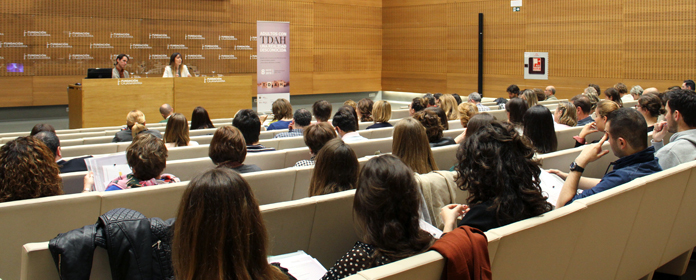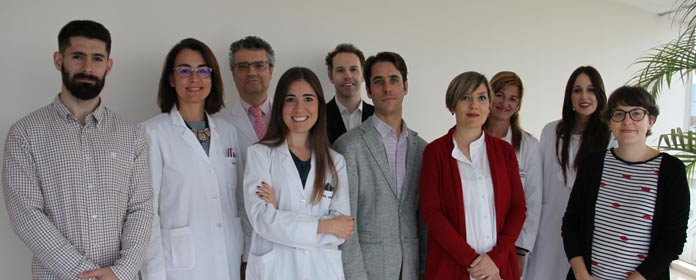"ADHD affects 2.8% of adults and has consequences on their health, work and personal relationships."
A workshop of the University of Navarra and the UNED of Pamplona emphasizes the importance of diagnosis to minimize problems associated with the disorder.

" Attention Deficit Hyperactivity Disorder (ADHD) affects 2.8% of adults and has relevant consequences on their health, work and personal relationships". This was stated by Gonzalo Arrondo, researcher of group 'Mente-cerebro' del Institute for Culture and Society (ICS) of the University of Navarra, at the framework of the workshop 'Adults with ADHD, an unknown reality'. The expert has co-organized this meeting with Raquel Artuch, professor and researcher at UNED Pamplona.
According to Arrondo, although 4% of children suffer from it, "it is not only an issue that affects them and that fundamentally influences school; it does not disappear when they come of age". Thus, he emphasized the importance of the visibility of ADHD in adults, since there are countries where the diagnosis figure is only 1%.
This lack of diagnosis -he said- can lead to serious problems: "If you don't know what you are like, you can't take measures to minimize the negative consequences". Some of these problems associated with the disorder can be, from agreement with programs of study, substance abuse, depression, anxiety or eating disorders (bulimia, anorexia, obesity...)"If you have ADHD and you do not reach everything, you do not meet expectations, it can generate anxiety or depression," he explained.
Restlessness, impulsivity and risky behaviorsThe psychiatrist Rafael Benito Moraga also intervened at workshop , who stressed that, in adult life, ADHD "leads to a deficit in the performance of basic brain functions for a good adaptation in most areas of life".
On the one hand, he explained that the difficulty in regulating attention can cause carelessness and forgetfulness in life staff and work, which can be annoying to some people around them. Even "absent-mindedness in driving, which sometimes has serious consequences", he added. On the other hand, he pointed out that "the restlessness and impulsivity associated with the disorder favor the appearance of risky behavior", as well as problems derived from not regulating one's own actions, words or emotions.The adult with ADHD is restless, is easily distracted, frequently forgets commitments and finds it difficult to maintain order, pay attention and start tasks that require concentration", described the psychiatrist.
However, presenting these traits does not necessarily imply having the disorder. Both Arrondo and Benito have agreed that one should only be concerned if they are "persistent" and have "negative consequences in daily life". If this is the case, they advise consulting a physician at reference letter.
In addition to them, other speakers were: meeting Egiarte Goikoetxea, counselor at high school for adults Félix Urabayen; Fernando Oscoz, delegate of the integrated center Cuatrovientos of training pro fessional; Iñaki L orea, clinical psychol ogist of the Argibide Foundati on and professor at the Public University of Nava rra; Azuc ena Díez, psychiatrist at the University of Navarra; Azucena Díez, psychiatrist at the University of Navarra; and Juan Cruz Ripoll, at Santa María Real. Clínica Universidad de Navarraand Juan Cruz Ripoll, delegate at high school Santa María la Real. Also, adults with ADHD and family members have offered their testimony in a roundtable.
This workshop has been framed in the project of research 'Habitual decisions: devaluation in decision-making in adults with and without ADHD', developed by the ICS with funding from the Ministry of Economics and business of the Government of Spain, and in the project 'ADHD symptoms in adults: prevalence in the system educational of Navarra', of UNED-Pamplona.




